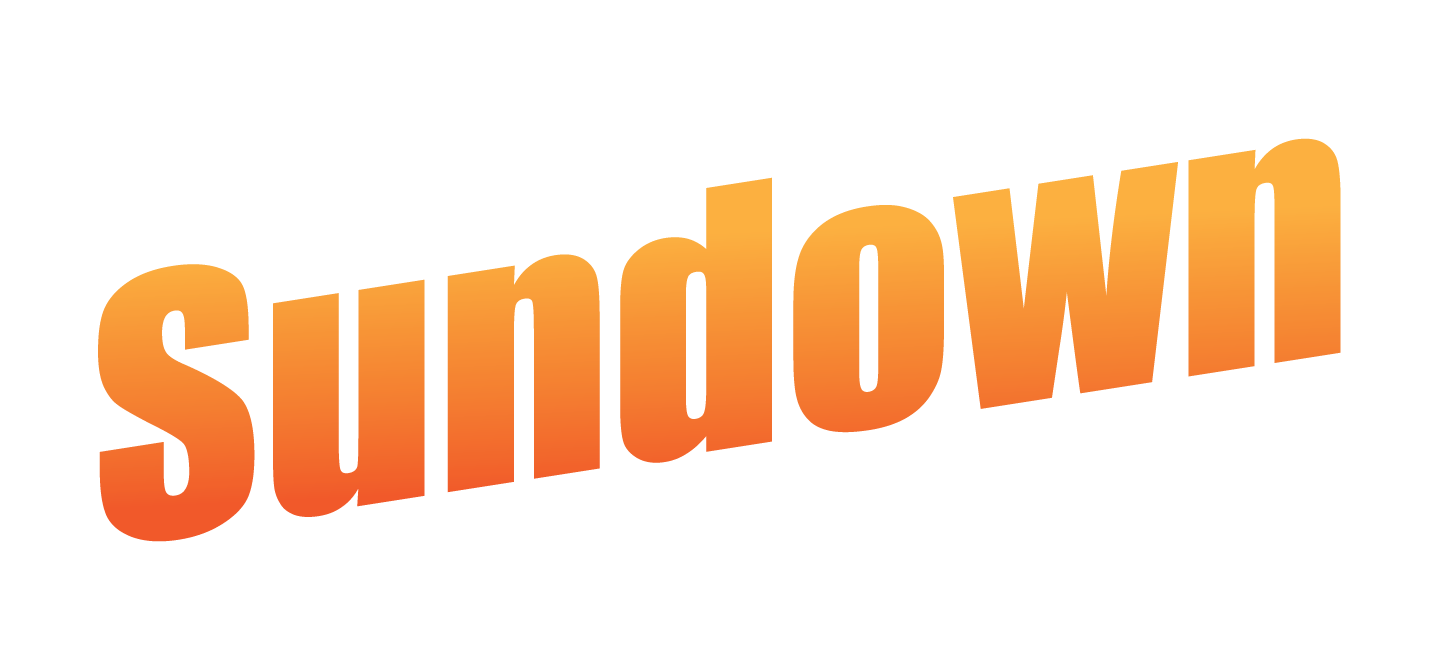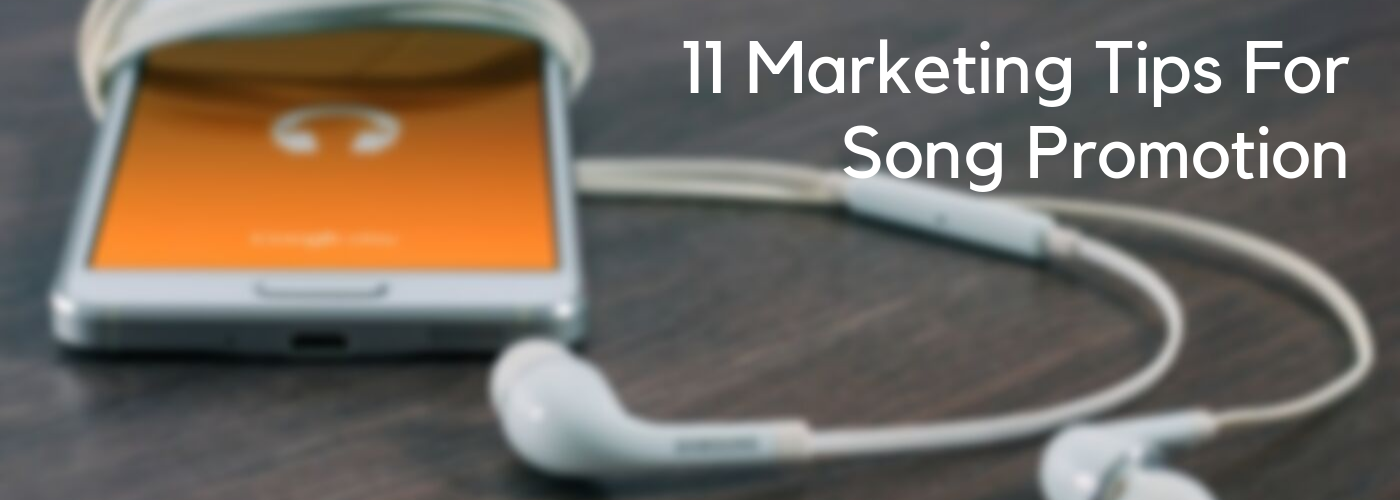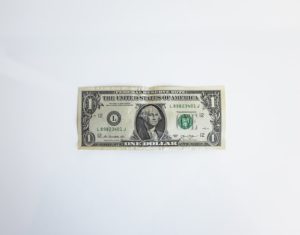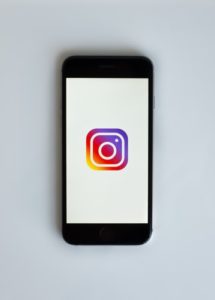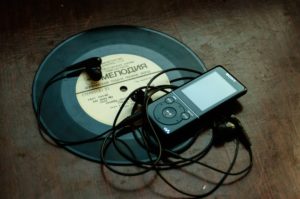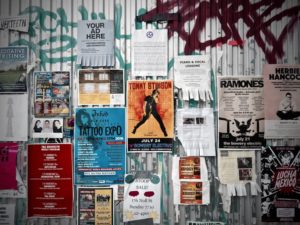If your an indie musician, song promotion can be an intimidating but an integral factor to a successful career.
It’d be nice if after putting your music online flocks of fans discovered you with no effort on your part at all. Unfortunately, it’s not that easy and it takes a lot of hard work to form a viable career as a musical artist.
Learning how to properly promote your music is the key to success but knowing where to start is difficult. With thousands of artists releasing new music every week, it’s easy to doubt if you even have a shot at being heard.
Thankfully, there are a number of tried and true tricks that you can put into motion to help you build an audience and maintain their attention.
Below are some of the best music promotion tactics you can use when you first begin releasing songs. They’re simple in theory but will make a huge impact on your music career.
1. Spend Time on Promotion
The biggest part of song promotion is to simply spend time doing it. Unfortunately there isn’t any magic secret that will bring you fame and fortune overnight. If so, everyone would being making use of it.
However, this actually works in your favour. If you’re willing to commit the time it takes to promote your music, you’ll stand out and see results.
Recently, I was speaking with a successful independent musician and asked what his secret was to building an audience. He told me that his rule is to spend as much time promoting new music as was spent creating it.
This really resonated with me and made me realize just how little time most bands spend on promoting their songs, compared to those recording them.
It’s really unfortunate, when you think of all the time spent on a single song from conception, through writing, arranging, practicing and recording. Promotion tends to take a back seat, but it’s what really matters if you want people to hear your songs.
2. How You Spend Your Money is More Important Than How Much
Another big secret in many artists promotional success is that they are super calculated with how they spend money.
Bigger acts are able throw a bunch of money aimlessly at several campaigns but usually see little results. However, if you’re a small act, chances are your funds are limited. In this case, spend time researching what type of campaigns are actually worth your while.
Find out who your target market is and customize your campaigns to focus on that specific niche. For example, the great thing about social media advertising is that you can really zero in on the demographic you want to see your ads.
Also be aware of what type of people primarily use certain platforms. Is your target market using radio, print, Facebook or Instagram more? Also, what days of the week and time of day are they most likely going to be using these mediums.
All of this is important to formulating proper PR campaigns. Figuring it out will help you to best spend your money on the song promotion side of things.
3. Connect With Fans Through Social Media
A great aspect of the music industry in 2020 is that social media has bridged the gap between fans and artists. It’s one of the most powerful promotion tools out their and gives your fans a look at who you are beyond the songs.
By making yourself more relatable to your followers you’ll give them a reason to stay invested in what you do. Show them a behind the scenes look at your concert tours, music recording or just your everyday life.
Remember that social media isn’t a one way street. When you’re fans comment and interact with you, interact back. Show them that you’re just as invested in them as they are with you.
Responding to questions and appreciating your fans goes a long way. The best part about using social media promotion for your songs it’s free but very powerful.
Check out the video below for some awesome tips on properly using social media promotion for your shows, songs, videos and everything else.
4. Use Hashtags
Many bands fall short on social media promotion by not using proper hashtags in posts. This is especially important for posts on Instagram.
Hashtags are a system that tell social media platforms what your post is about. Using them helps your content appear in “discover” feeds for users with similar interests. Many social media users will also follow certain hashtags to find new music and bands to follow.
Learn what the top hashtags are in your musical niche or related to the post you’re making and use them at the end of your posts. Currently Instagram supports up to thirty hashtags per post, so try to use as many as possible, while staying on topic.
Instagram also prefers if you follow up your caption with five dots, each on their own line, followed by the hashtags. An example of this is as follows.
This is your photo caption.
.
.
.
.
.
#these #are #your #hashtags
Instagram won’t let you style a caption like this in the app. Instead use another notepad app to stylize the caption then copy and paste it into Instagram.
There are plenty of tools out there to help you find hashtags related to your niche. We recommend using DisplayPurposes.com
5. Release Lots of Singles
With the rise of streaming and online media, we currently live in a world of single-oriented music consumers.
Most people don’t have the attention span to listen through an entire album of music. This is especially true with lesser known indie artists. You have to give people a reason to listen to your music.
Once you’ve released and run promotion for a few singles off your album, people will be more invested and inclined to listen to the whole thing.
The other reason single songs are important is because content is king in the music promotion world. People get bored easily. If you just put out an album of ten songs, the average consumer will check it out then never visit your website or social media until your next release.
However, if you were to take those same ten songs and release half of them in a constant stream of singles over several weeks, the online attention you receive will be exponentially higher.
You’ll stay relevant longer and people will keep coming back to check in on what your latest release is.
6. Get As Much Content Out Of Every Release
Once again, content is the most important thing in the online world if you want your fans to stay invested. Many artists fall short by looking at a song as just one piece of promotional content.
However, it’s actually one major long-form release that can be broken down into a bunch of smaller pieces of content. For example, a single can be hyped with social media posts made on all platforms, leading up to its release. These can be photos, teasers or behind the scenes clips.
Once a track is released, more photos can be released and videos can follow suit. Not only can you release an official music video but you can also release lyric videos, a live performance video and a stripped down acoustic video.
By following these examples, you’ve now taken what most think of as one piece of content and turned it into at least a dozen pieces of content all supporting the larger release. The more content you have out there, the more likely new fans are going to discover it and current fans will stay invested.
7. Take It Offline
As great as it is to have a strong online web presence, marketing in the real world is equally important. If you’re playing a show in a specific area, put up posters, hand out flyers and reach out to local radio stations for features.
If there are friends, family or fans in a specific area that you know of, send them a personal message inviting them to your show. On top of that, reach out to fans after the show to thank them for coming out.
Be a genuine nice person and remember that they’re doing you a favour by supporting your music, not the other way around.
So many artists get lost focusing on online song promotion that they start to forget about all the avenues for growth offline. In a world saturated by online marketing, fans will find something refreshing about an organic interaction and any promotion in this capacity will hold more weight.
8. Have A Well Designed Website
Many people feel that having a Facebook, Instagram or Twitter page is enough online promotion for their songs.
Although these are all excellent tools, none of them serve as a true home base where interested fans can find out more about you and your music.
Not only that, but social media pages are not forever. Facebook is already on the decline and it’s only a matter of time before Instagram bites the dust as well.
However, a website is the only online presence you have full control over and can really put your best foot forward to the industry.
Building a site that looks professional, is easy to navigate and serves as an augmentation of your social media presence can only have a positive impact on the publics perspective of you and your music.
9. Collect a Mailing List
Another area of online presence that gets forgotten in loo of social media is the importance of an email list. Facebook and Instagram followers are well and good, but any posts you make get filtered by algorithms and plenty of your fans don’t even end up seeing them.
Because of this, emails still remain one of the most direct ways to get in touch with your fans. Finding creative ways to build up a list of email subscribers is important, whether that be a form on your website or a physical sign up sheet at a live show.
Whichever way you go about it, always offer something to your fans in exchange for them signing up. Something as simple as a free song, exclusive video or discount code for merchandise will suffice.
People are very unlikely to sign up without an incentive. So, these sort of rewards make a big difference.
Once you have a large email list, don’t spam it with too many posts or you’ll begin to lose followers. We’ve all been on lists like this, with emails coming in at least once a day from certain subscriptions. Eventually, if you don’t unsubscribe from the lists, you start to ignore the emails.
To avoid this happening to you, only post once every two – four weeks and make sure that it’s quality content. If you don’t have anything new to say, don’t bother emailing your fans.
You can overload people with content on social media as much as much as you’d like, but tread lightly with email.
10. Approach Curated and Indie Playlists
With the single oriented world we live in comes the importance of playlists on streaming services such as Spotify or Apple Music.
Submitting yourself and getting placed on curated playlists is difficult due to mass amounts of competition. However, many don’t realize the number of independent playlists on streaming services that have plenty of views as well.
Getting placed on these can still be tricky but if you approach those that are related to your niche, you’ll have a much better chance getting placed.
Once you get placed on a few smaller playlists, the bigger site-curated playlists will start to take notice of your music as well.
11. Make an EPK and Submit It To Press Outlets
An EPK stands for electronic press kit and it’s exactly what it sounds like. It’s short to the point introduction of your band in an electronic format.
It features promotional photos, a band bio and links to music and videos of performances. This can be in a format such as a PDF or a private web page.
Spend time making sure your press kit sums up what makes your band unique in as concise a way as possible. Once you’re finished, approach press outlets and publications with it.
There are thousands of blogs, magazines and newspapers out there and they’re always searching for new content to feature.
By reaching out to these outlets you’ll eventually find yourself being featured or shared by them. This is a great way to introduce your music to a whole new audience that wouldn’t have discovered you otherwise.
Check out the video below for some great tips on creating a powerful EPK.
Conclusion: Song Promotion
You don’t need a lot of money or a huge team in order to properly promote your music in 2020. What matters more is how much time and thought you are willing to put in.
By making calculated, educated PR moves you’ll be able to slowly build an audience both online and offline. Connecting to fans through social is awesome but don’t forget to have a strong website and use offline tactics as well.
Furthermore, making a press kit and reaching out to publications and curated playlists can help you get discovered by an attentive audience.
All these tips are simple enough in theory but they take time to put into action. The good news about this is that not all bands are willing to put in the required effort. So, if you put your mind to it and stay consistent with your marketing you’ll gradually build an audience of listeners, excited for your music.
Remember that it’s a marathon not a race. You won’t see huge results of your promotion efforts with the first few songs you release. However, slowly but surely you’ll see rewarding results for the time you spend.
If you enjoyed this guide, check out the rest of the Sundown Sessions Blog for more tips on songwriting, home recording and mixing music.
